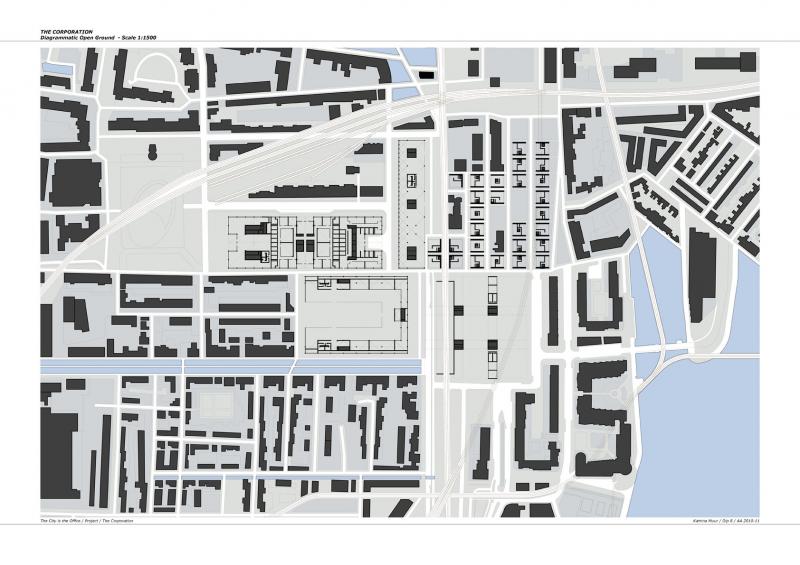
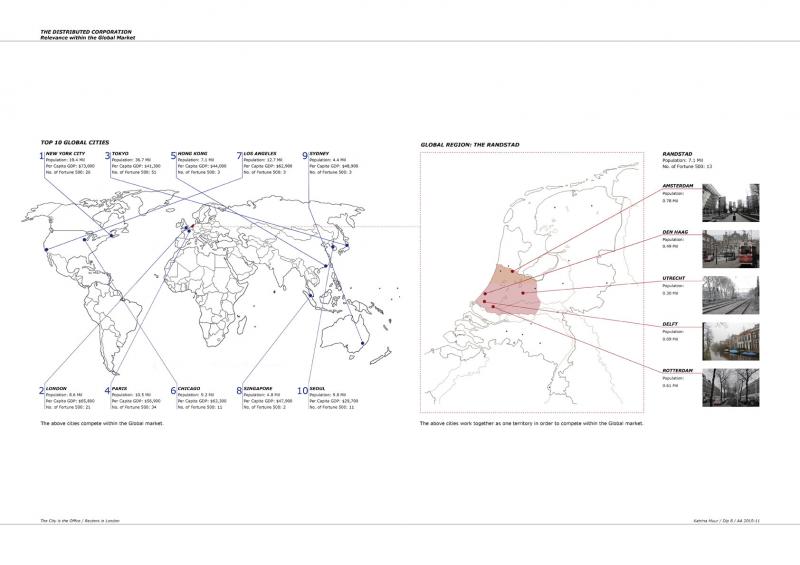
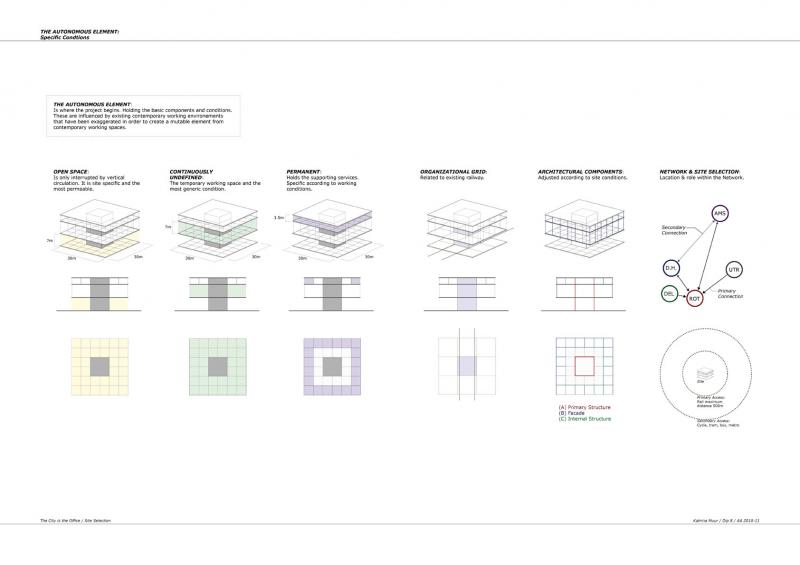
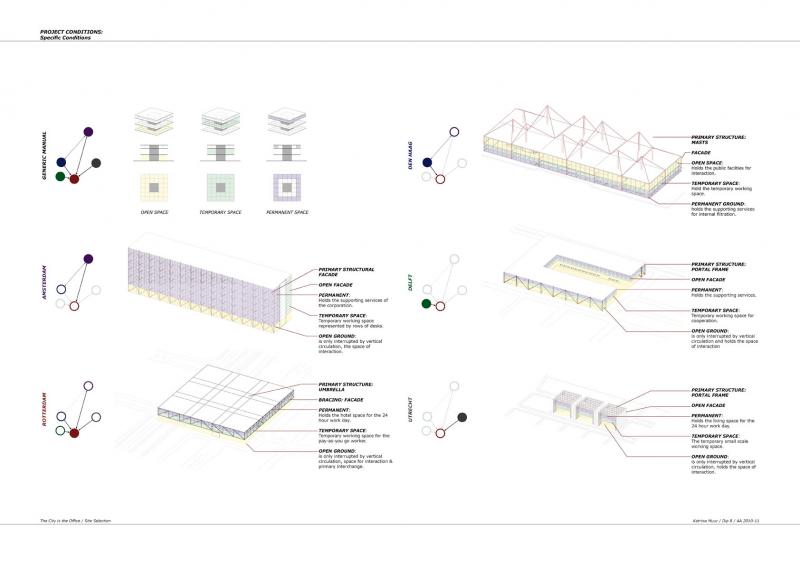
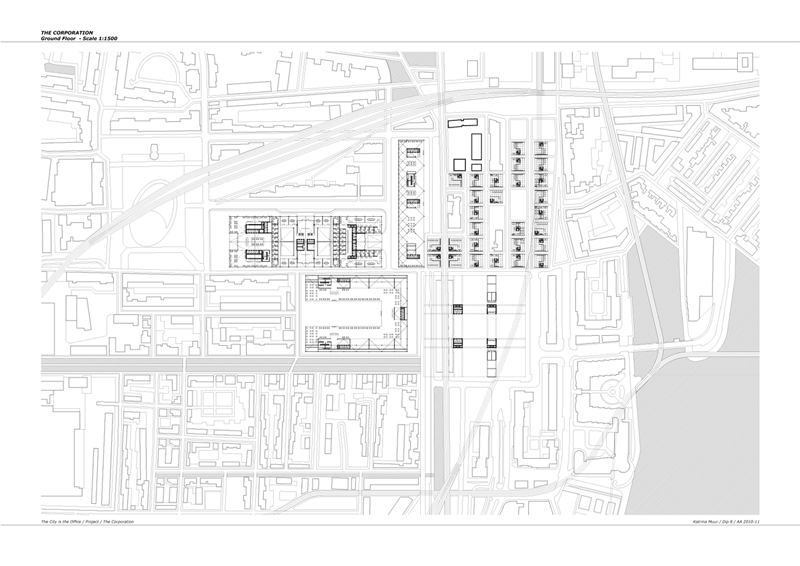
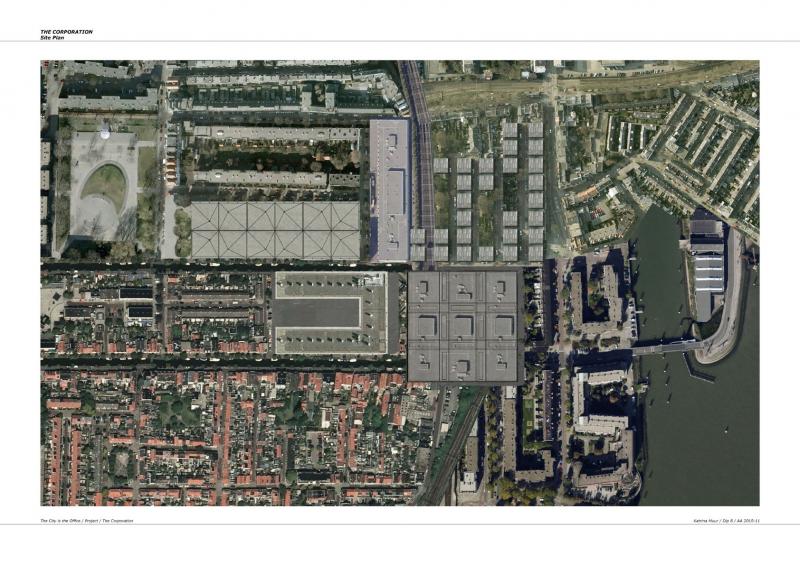
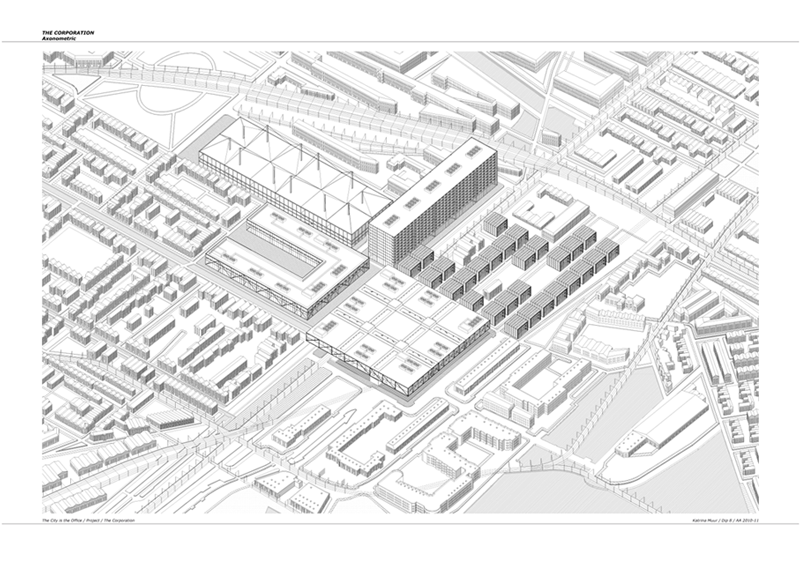
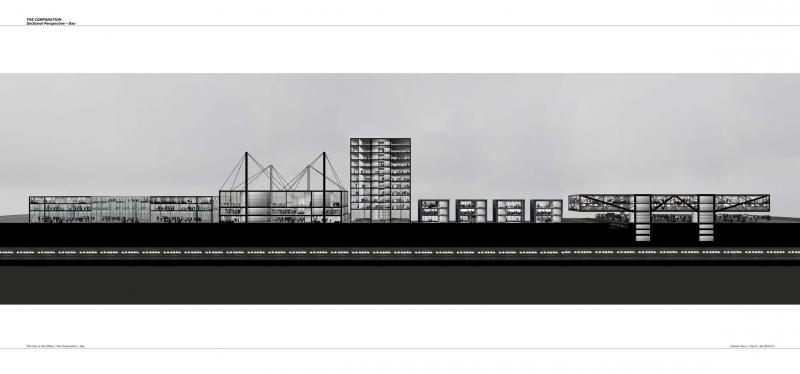
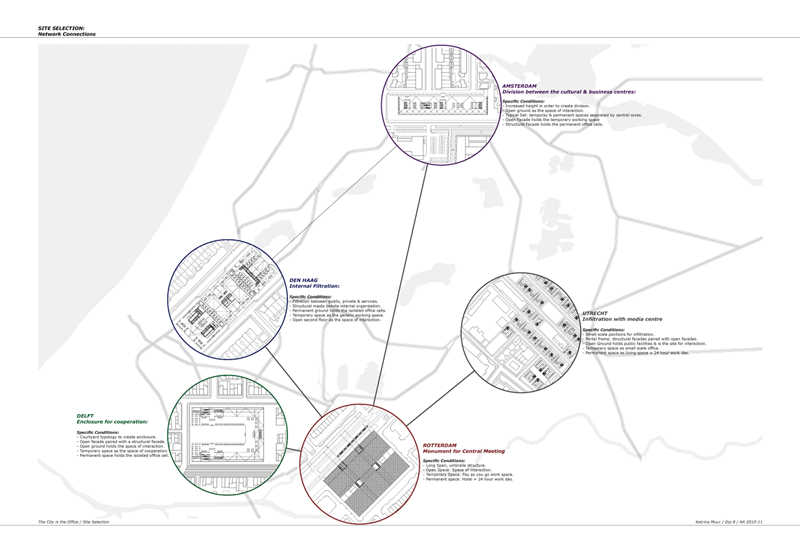
The project looks at the space of “production as the essential space of the contemporary corporation”. Production is no longer based in the factory, however has becomes the production of knowledge within a generic plan located in the city.
Because of the blurring of work, leisure and living, where work consume most of our day, the corporation is often represented as an autonomous and enclosed campus where these facilities are combined as one.
The argument takes a clear position of avoiding the contemporary attitude of a corporation that absorbs the entire cycle of working, living and leisure into a segregated campus. It however, opens up to the city and uses its potential in order to define a distributed corporation.